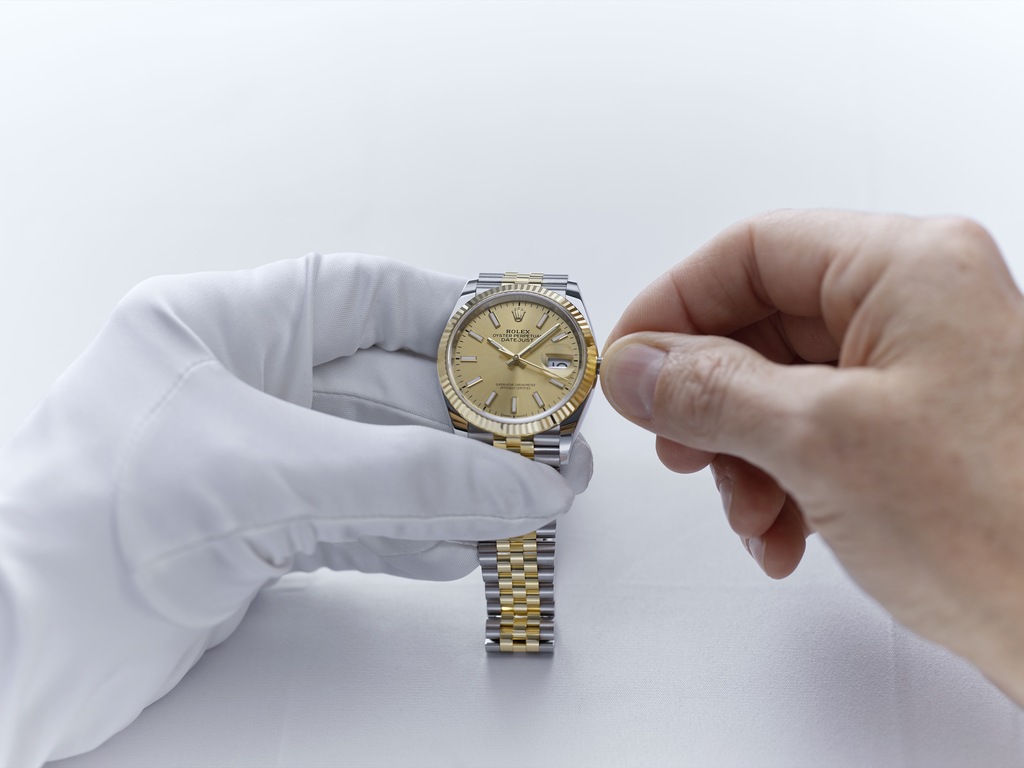
Why does my watch stop?
It may happen that your watch suddenly stops, which may seem worrying. However, depending on the movement of your watch, the problem is not necessarily serious.
What are the recurring problems with quartz watches?
If you have read our article on the different movements, you now know how to identify a quartz movement. However, if you have any doubts, do not hesitate to reread this article here. For quartz movements, it is necessary to differentiate a new watch from an old one. Indeed, in the case of a recent watch (-15 years), it is very likely that the problem comes from the battery. In this case, there are two solutions: either you change the battery yourself, which is quite easy on a Swatch for example, or you take your watch to a watchmaker or to the brand directly. This type of intervention is generally very inexpensive with an independent watchmaker but can become quite expensive if you go through the brand directly. We advise you to ask for several quotes before changing the battery. Also check that the crown of your watch is well inserted because on some quartz models, pulling the crown can stop the movement. In the case of an old watch, the battery may have leaked into the movement. In this case, you should take your watch directly to a watchmaker to be cleaned. This is much more expensive than simply changing the battery, and it is best to clean the watch quickly to avoid permanent damage to the movement.
What are the common problems with hand-wound mechanical watches?
A mechanical watch may stop when its power reserve is empty. You can consult our lexicon here to have the exact definition of the power reserve. Indeed, your watch, once manually wound, has a power reserve of a certain number of hours. If you do not wind your watch every day, your watch will stop after a certain time. This is the most common situation, as you can simply wind your watch and reset it. Also check that the power reserve of your watch is in line with the data of the manufactures, as a low power reserve is a frequent symptom of a malfunctioning movement. If the power reserve is several hours less than that announced by the brand, you will have to take your watch in for a complete overhaul of the movement because a part is probably faulty.

What are the common problems with automatic watches?
The causes are the same as for the mechanical hand-wound movement except that instead of winding the watch with the crown, you wind it with your wrist. So if you don't wear your watch for a day or two, it may stop. Remember once again to check the power reserve of your watch with that announced by the manufacture. Another possible failure is if the rotor is out of alignment and no longer doing its job properly. If the rotor is no longer working properly, your automatic watch can no longer get its energy from the movement of your wrist and stops.
Why did my watch start to fog?
Whether your watch is quartz, manual or automatic, you may find that the glass of your watch fogs up. If this happens, it means that the seal is no longer doing its job and that water has seeped into your watch. Don't worry, you should first stop your watch if it is equipped with a stop second and then take it in for service as soon as possible. If you don't wait too long or if very little water has infiltrated, it is likely that the movement has not had time to rust and that a simple overhaul is sufficient. However, if you wait too long, the damage to the movement may be irreversible.
It is also possible for dust to get into your watch, although this is less common than fogging as most modern watches are dustproof. Nevertheless, dust can block your movement. If it does manage to get in, water could also get into your watch. We advise you to go and see a watchmaker if you have any doubts about your watch in order to make an accurate diagnosis.



